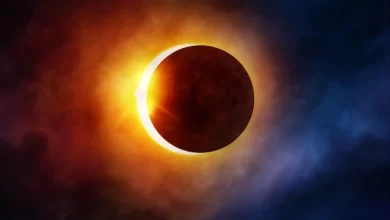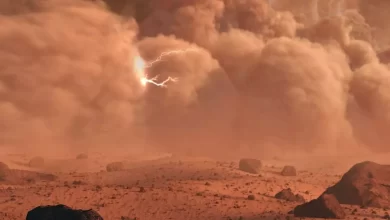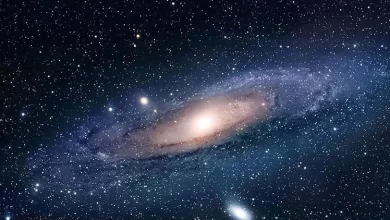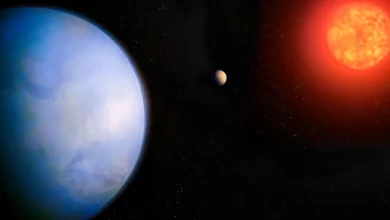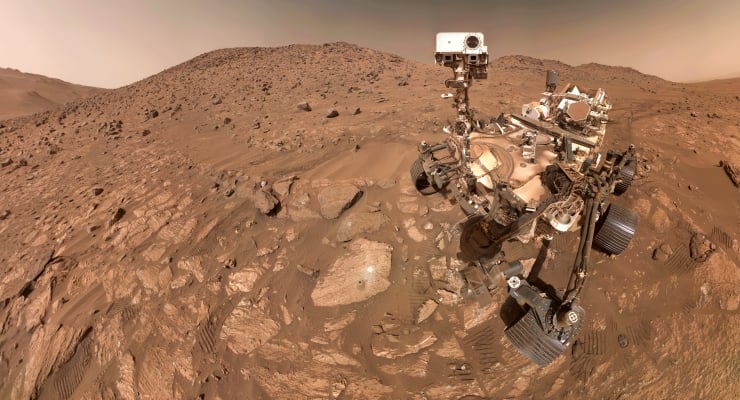
Perseverance Rover Detects A Highly Iron-Nickel Rich Meteorite Candidate Named ‘Phippsaksla’ In Jezero Crater
WASHINGTON, USA – NASA’s Perseverance rover on Mars has made a notable discovery on the Red Planet. Perseverance detected a surprisingly shaped rock in the Vernodden region of Jezero Crater, which appears, by its composition and surface shape, not to belong to the planet. This Mars Non-Planetary Rock Discovery is suspected to be an iron-nickel meteorite that arrived from outer space.
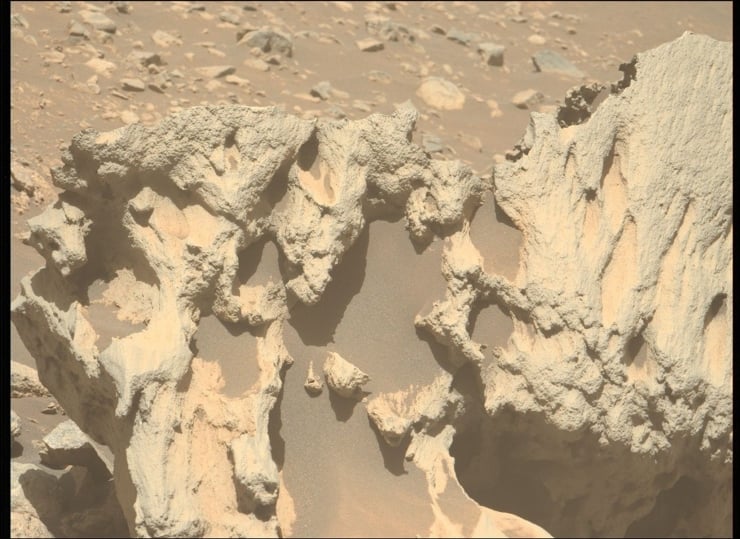
📝 THE MYSTERY OF PHIPPSAKSLA AND ITS CHEMICAL SIGNATURE
According to NASA’s announcement, the rock, dubbed ‘Phippsaksla,’ stands out from other Martian rocks surrounding it.
- Distinguishing Feature: The most important characteristic making the rock “non-Martian” is its composition, which is rich in iron and nickel. While iron is common on the Martian surface, the high concentration of nickel strengthens the possibility that the rock is a meteorite that impacted the planet at some point in the past.
- Physical Appearance: Perseverance noticed the rock due to its unique shape. The object, which is larger and stands taller than the surrounding rocks, appears interestingly sculpted. This characteristic supports the theory that it may be a meteorite that was shaped while burning up in the atmosphere.
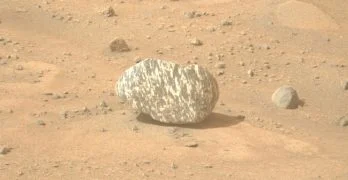
💡 SCIENTIFIC SIGNIFICANCE AND POTENTIAL FIRST
The Mars Non-Planetary Rock Discovery is not a complete surprise to scientists (as iron-nickel meteorites have been found in other regions of Mars), but finding such a rock in this area was expected and overdue.
- Cosmic Clues: Confirmation that the rock is a meteorite would mark another significant first for Perseverance. Furthermore, this meteorite could provide additional clues about Mars’s and the Solar System’s early history, as these stones are often pristine materials left over from the Solar System’s formation.
- Broader Mission: This discovery will indirectly shed light on NASA’s broader mission to investigate how Mars lost its atmosphere.
Scientists will conduct further analysis to confirm conclusively that Phippsaksla is a meteorite. In conclusion, Perseverance continues to decode not only Mars’s past but also the history of the Solar System.



